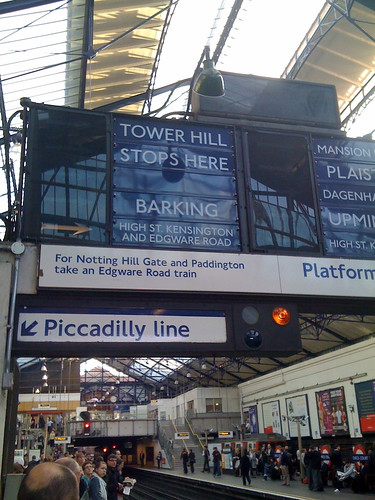Location and Privacy - Where Do We Care?
Gary Gale
As part of this year's AGI GeoCommunity '09 conference, I took part in the Privacy: Where Do We Care? panel on location and the implications for privacy with Terry Jones, Audrey Mandela and Ian Broadbent, chaired and overseen by conference chair Steven Feldman.

Our location is probably the single most valuable facet of our online identity, although where I currently am, whilst interesting, is far less valuable and personal than where I've been. Where I've been, if stored, monitored and analysed, provides a level of insight into my real world activities that transcends the other forms of insight and targeting that are directed at my online activities, such as behavioural and demographic analysis.
Where I've been, my location stream if you will, is a convergence of online and real world identity and should not be revealed, ignored or given away without thought and without consent.In the real world we unconsciously provide differing levels of granularity in our social engagements when we answer the seemingly trivial question "where have you been?". To our family and close friends we may give a detailed reply ... "I was out with colleagues from work at Browns on St. Martin's Lane, London", to other friends and colleagues we may give a more circumspect reply ... "I was out in the Covent Garden area" and to acquaintances, a more generalised reply ... "I was in Central London" or even "mind your own business"
As with the real world, so we should choose to reveal our location to applications and to companies online with differing levels of granularity, including the ability to be our own source of truth and to conceal ourselves entirely, in other words, to lie about where I am. Where I am in the real world should be revealed to the online world only on an opt-in basis, carefully considered and with an eye on the value proposition that is being given to me on the basis of revealing my location to a third party. My location is mine and mine alone and I should never have to opt out of revealing where am I and where I've been.
Posted via email from Gary's Posterous


 Last night I
Last night I